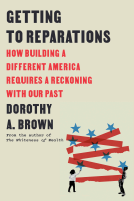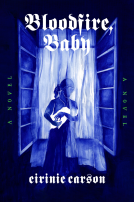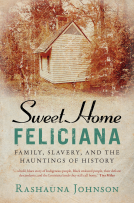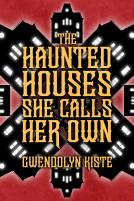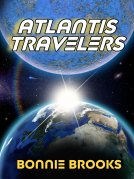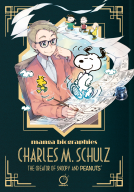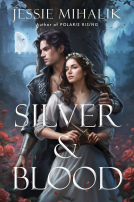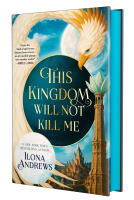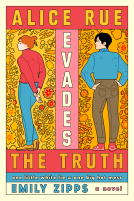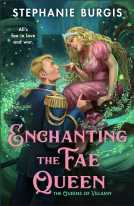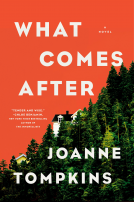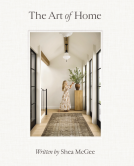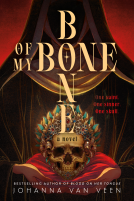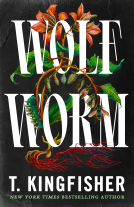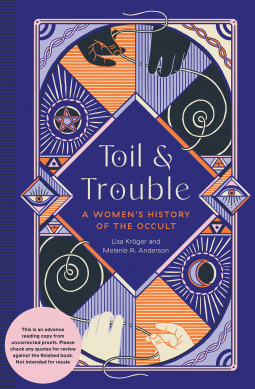
Toil and Trouble
A Women's History of the Occult
by Lisa Kröger; Melanie R. Anderson
This title was previously available on NetGalley and is now archived.
Send NetGalley books directly to your Kindle or Kindle app
1
To read on a Kindle or Kindle app, please add kindle@netgalley.com as an approved email address to receive files in your Amazon account. Click here for step-by-step instructions.
2
Also find your Kindle email address within your Amazon account, and enter it here.
Pub Date Oct 25 2022 | Archive Date Mar 30 2023
Talking about this book? Use #ToilandTrouble #NetGalley. More hashtag tips!
Description
Meet the mystical women and nonbinary people from US history who found strength through the supernatural—and those who are still forging the way today. From the celebrity spirit mediums of the nineteenth century to contemporary activist witches hexing the patriarchy, these icons have long used magic and mysticism to seize the power they’re so often denied.
Organized around different approaches women in particular have taken to the occult over the decades—using the supernatural for political gain, seeking fame and fortune as spiritual practitioners, embracing their witchy identities, and more—this book shines a light on underappreciated magical pioneers, including:
✦ Dion Fortune, who tried to marshal a magical army against Adolf Hitler
✦ Bri Luna, the Hoodwitch, social media star and serious magical practitioner
✦ Joan Quigley, personal psychic to Nancy Reagan
✦ Marie Laveau, voodoo queen of New Orleans
✦ Elvira, queer goth sex symbol who defied the Satanic Panic
✦ And many more!
Advance Praise
An October 2022 Book Club Pick for The Mary Sue
“A fascinating and at times infuriating look at the ways in which women have gained power through the occult, been persecuted by it, and forged relationships with one another through it.”—GeekMom
“Anyone who has dabbled in the craft by way of #witchtok will deepen their knowledge immensely by reading this book. And with a final chapter titled “100% That Witch,” you know you’re going to learn a lot and have some fun.”—BookPage
Available Editions
| EDITION | Other Format |
| ISBN | 9781683692911 |
| PRICE | $19.99 (USD) |
| PAGES | 336 |
Average rating from 48 members
Featured Reviews
 Anita S, Librarian
Anita S, Librarian
The authors, horror academics Kroger and Anderson, who first came to great acclaim with "Monster She Wrote" and highlight female contributions to horror, have returned with another book, this one touted as a women's history of the occult.
They start off with a discussion of how social media has become part of the proliferation of people exploring interests in the occult, people in their teens and twenties in particular, the proliferation of #witchtok on the TikTok platform, and trying in a way to democratize the presence of witches, or as the authors put it more astutely, folks who have "used occult tools to achieve empowerment." As they also point out, they have long been interested in the intersection of women's history and the occult, and they look primarily at the United States.
They also talk about the importance of the use of the term 'witch,' what it signifies, religious practices versus people who throw the term around perhaps a bit more casually, insinuations, anything occult being labeled 'witchcraft,' pejorative associated terms and how to be respectful. They give the same consideration to the term 'occult' for similar reasons as well as conflations with other organized religions.
The famous figures you might expect like Marie Laveau are included, because no guide to witches would be complete without her, Madame Helena Blavatsky, Sylvia Browne and other television psychics, and even Stormy Daniels.
The authors start things off, where else, but in Salem, Mass, in the 17th century, women's roles, patriarchy, false accusations of witchcraft, and the Witch Trials. The figure of Tituba is discussed several times throughout the book. They then branch off into the Spiritualism movement and the Fox sisters; Helen Peters Nosworthy or the woman reputed to have built Ouija boards; Pamela Colman Smith reputed to have popularized tarot cards; women in Hollywood like Marjorie Cameron; Wicca; the 1996 film "The Craft" which is one of my favourites (there's a small spotlight on Rachel True, the actress who portrayed Rochelle, the only person of colour in the film's witchy quartet). They also discuss the Satanic Panic of the 1980s, Dungeons & Dragons, the 'Scully Effect' of the popular 90s television show The X-Files, and more.
Also discussed are women's roles in politics and figures like Victoria Woodhull as well as other lesser known figures such as Harriet E. Wilson, who was a free Black woman born in New Hampshire and one of the first published Black novelists in the United States. The profile of her focuses on how she became involved in the Spiritualist movement in the early 1860s and how she eventually moved to Boston. She became known as a trance reader or medium. Another Black woman who achieved similar notoriety was Rebecca Cox Jackson hose writings were collected in the 1981 book "Gifts of Power." There is also a very interesting featurette on formerly enslaved woman, abolitionist, and suffragette Sojourner Truth.
Other famous horror figures who get discussed are Vampira and Elvira, television incarnations like Sabrina the Teenage Witch (as well as Netflix's much darker take, The Chilling Adventures of Sabrina). Bewitched, is of course, discussed. As well, toward the end of the book, newer figures like Krysta Venora, an Afro-Indigenous, trans, nonbinary, queer witch, are discussed.
Overall, it's a fascinating book and a must-own for anyone with an interest in women's history in the United States as well as intersections with the occult and many figures that you have likely not heard of (and yes, there is a discussion on the witches who were said to have hexed the previous administration's president whose reign of terror began in 2017 whose name I do not wish to state).
Readers who liked this book also liked:
Yuzuru Kuki
Biographies & Memoirs, Children's Nonfiction, Comics, Graphic Novels, Manga
